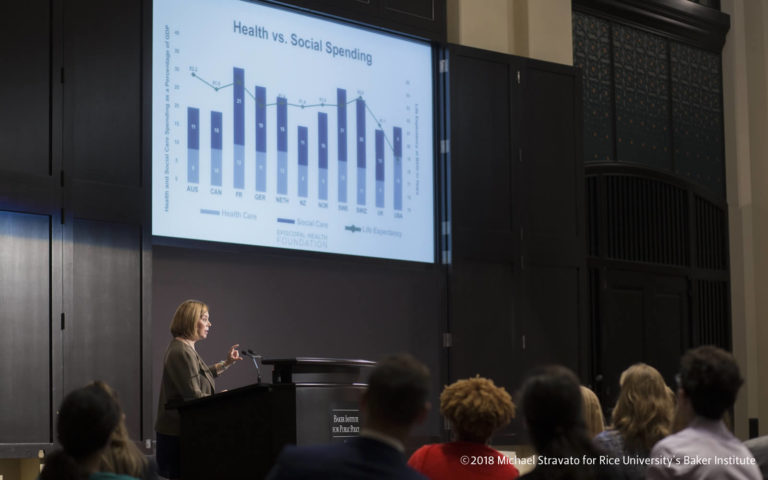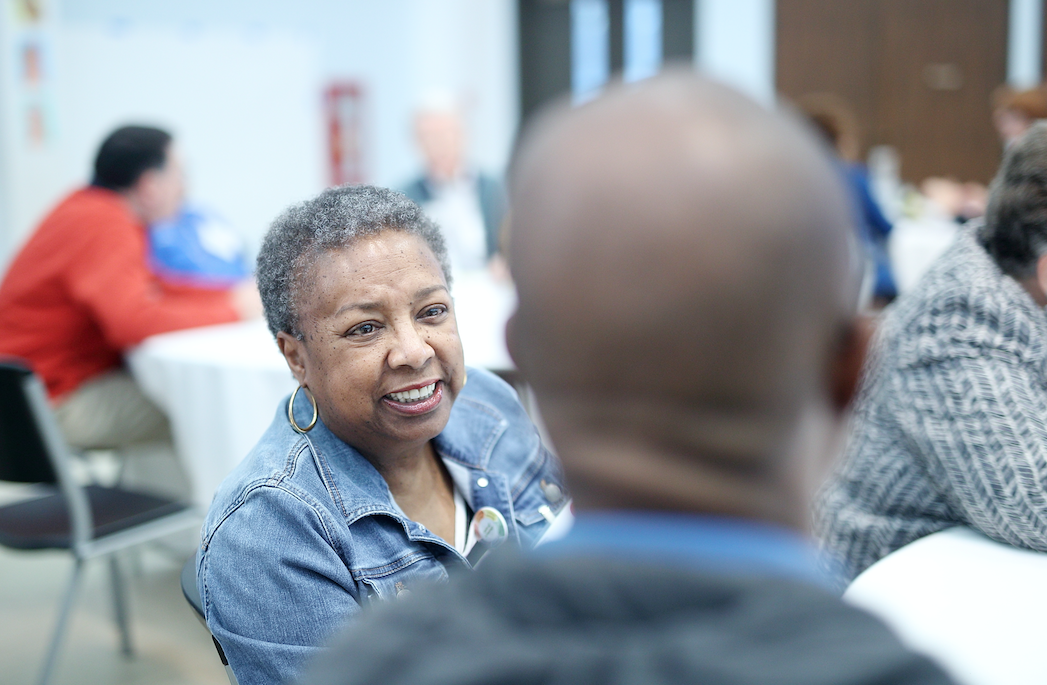Produce Prescriptions Program
Family Health Center, Waco
EHF’s Texas Community Centered Health Homes Initiative
Delivering health, not just healthcare in Texas
When you change the conversation, that’s when you change the system.”

Rice University’s Baker Institute for Public Policy
Health and healthcare are not the same.
The U.S. spends more on healthcare than any other developed country. You’d think that would make us the healthiest people on Earth. Yet when it comes to how long we live, we’re not even in the top 25 countries in the world.

While we spend the most on medical care, we spend far less than other countries on the non-medical factors that impact health like housing, poverty, safe neighborhoods and much more.
The opportunity for good health starts long before you need medical care.
At Episcopal Health Foundation, we’re finding ways to not just fund healthcare, but to invest in organizations that address the root causes of poor health. We’re using EHF’s resources to spark and support organizations to use non-medical solutions when non-medical solutions are what the situation demands.
Upstream solutions that deliver health are everywhere. We can see them only if we can unhook our minds from the belief that expensive, invasive healthcare is our best vehicle for delivering health.
We can deliver health by embedding a lawyer at a clinic who sees that a child’s illness is due to a landlord’s neglect.
We can deliver health by paying for healthy food, repairing street lights, playgrounds and building walking paths to address health issues pervasive in a community.
We can deliver health by installing a community garden to overcome mental health issues that result from isolation.
We can deliver health by supporting pediatricians in teaching parents how to build their babies’ brains for a lifetime of better health.
If we can target our nation’s vast resources toward real health solutions, there is nothing that will stop us from having the greatest health system in the world.
But it’s up to each of us to change the conversation.

Elena Marks
President and CEO

EHF Congregational Engagement event
Re-engaging Communities for Health

